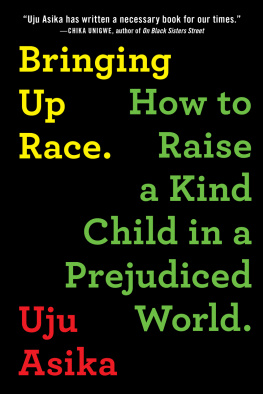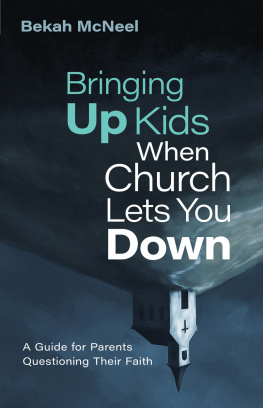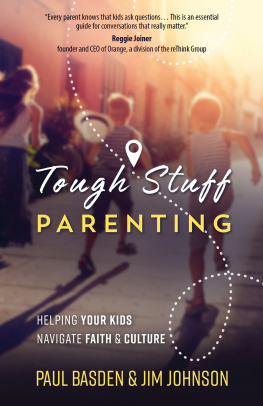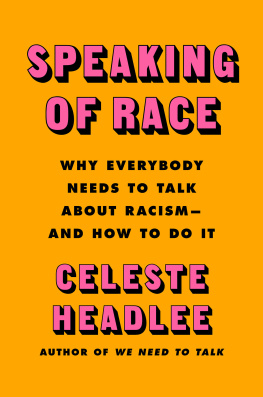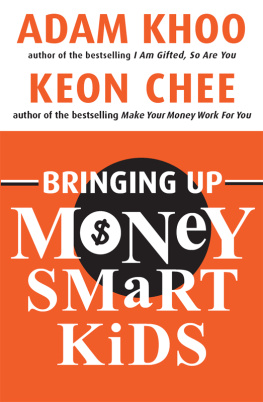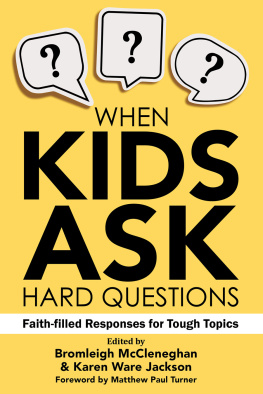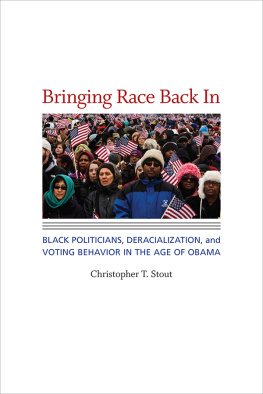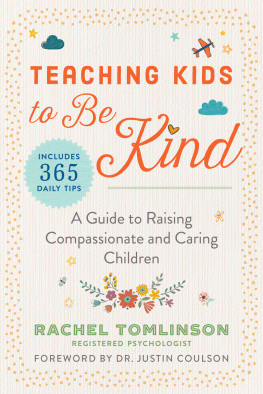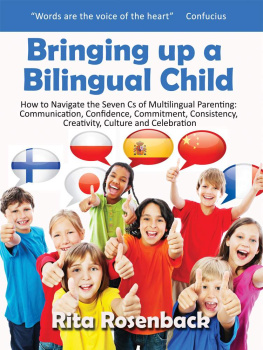Whose Child Is That?
There is no such thing as other peoples children.
RUSSIAN PROVERB
I was walking through Abuja airport, sweating under the weight of baggage and baby. Nine-month-old Ezra balanced precariously on a hip seat buckled awkwardly around my waist. A diaper bag, crammed to bursting, was slung low across my body, knocking my right thigh repeatedly.
Im an anxious flyer at the best of times, and this was my first experience traveling solo with an infant. The journey itself had been relatively smooth. Yet my nerves were jangling after trying to breastfeed discreetly on a flying vehicle packed with strangers, changing diapers in the pop-up crib, and being on red alert for six hours and counting.
Despite the combo of exhaustion and discomfort, I was bubbly with anticipation. It was my first visit home since becoming a mother, the first time I would present my newborn to his grandmother, who was waiting with open arms and full table at her home in Maitama.
I was born in Nigeria, and although the greater portion of my life has been spent abroad, when I talk of home, its still the first place that springs to mind. I consider myself a Londoner through and through, and of course, that is home too. Its where I live, how I express myself, the city where my kids were born. But nothing compares to the feeling of stepping on native soil, taking in the familiar clash of scents, my skin shocked by the heat. Shocked but happy. Yes, my heart whispers. Welcome back.
As I walked through the airport, I was increasingly aware of stares. Eyes snapping wide at the sight of dark-skinned me, proudly lumbering along with what could be described as a chubby Samoan baby on my hip.
When Ezra was born, he had straight, jet-black hair, almond eyes, and pale skin. As the weeks went on, his cheeks and frame filled out, and he took on the appearance of a jolly Buddha. I would sometimes entertain his dad by dressing Ezra up in a skull cap and waving his arms along to the lyrics of Fat Joe. He looked a lot like the Latino rapper, and it cracked us up.
So there I was, Fat Joe bouncing along on my hip, heading blithely toward passport control.
The Nigerian character is the antithesis of subtle. As a nation, we are loud and in your face. Back in England, even if passersby wondered about us, few would dare to remark on our difference. Here, in my homeland, the staring was audible. An airport official marched over.
Na your pikin be dis?
From pidgin English, this translates as Is this your child?
It was my turn to stare. What was this person asking me?
How should I respond?
A part of me wanted to quip, No, actually, I picked him up at Heathrow. But you dont joke with Nigerian airport officials. Not unless youre safely through customs or have several crisp notes to shake hands with if the laughter stops.
The stares and questions followed me not just through the airport but throughout our trip. People would ask how I got this oyinbo (White) baby, where his father was, if I was really his mom
My responses veered from irritation to amusement. I got used to dishing out flat, forthright answers that rarely seemed to satisfy. Or making up stories. Like the one about Ezras father, the sumo wrestler, who was stuck in Japan at a tournament.
Is That Kid Yours?
When your child is placed in your arms for the first time, the world comes sharply into focus. Nothing matters more.
I remember stepping out of the hospital, a brand-new Ezra in my arms, feeling like Id been unplugged from the matrix. Every sense was tingling. I could hear, see, and smell the city and all its dangers, but I was ready. Now I understood why I had been bornto be a warrior for my baby. I would slay dragons, tear whole armies apart with my teeth, if anybody tried to harm a hair on his head.
Yet with one question, a complete stranger could throw me off-balance.
Is that kid yours?
I didnt know whether to laugh or scream. Yes, I carried that baby for nearly ten months. I cut out alcohol. I had sciatica and restless legs, crazy dreams, and a belly that will never, ever spring back. Are you effing kidding me right now?
Maybe its not the question itself but everything it implies: You dont look like the mother, so you cant possibly be the mother. Your child is approximately White, with that good hair, and, well, look at you How did you get to have such adorable kids? I mean, youre attractive and all, but still Wheres the daddy? Is he White? Chinese? Why isnt he around? Did he abandon you? Couldnt you find any decent men of your own kind to procreate with? I wish I had cute kids like yours. Id prefer them to be light-skinned. Im thinking of getting a White man myself
For most moms, being told you dont belong with your child is like the ultimate slap in the face. My inner Nigerian Big Madam swells up like Do you know who I am?
My friend Nomita Vaish-Taylor, owner of the blog Your DIY Family, feels my pain. She talks about going home to Mumbai with her daughter, Anya, whose father is White. People literally follow us in the street, and you can see them wondering about us. Like, where did she get her from? As if I stole her. Its only when Richard is with us that we make any kind of sense. I shrug it off, but its pretty annoying.
You dont have to be of a different ethnic background from your baby to be probed in this manner. Mothers Ive spoken to have faced intrusive comments for appearing older (grandma?), having multiples (IVF?), or if one child stands out from the rest (milkman?). For White moms of dark-skinned children, strangers often assume theyve fostered them or adopted from overseas.
On parenting forums, moms share snappy comebacks to the very rude query Where did you get that baby from?
From my vagina is a personal favorite.
Who Does Your Baby Look Like?
One of the weird things about motherhood is how everybody and their mama (and she should definitely know better) has an opinion about you and your child.
From midwives to the man on the street, the first thing people will tell you is who your baby looks like. Ive heard folks become adamant, almost rabid, about this.
Hes the spitting image of his father. He looks nothing like you.
I spent fifteen hours in induced labor with Ezra. From the first waves of pain, I was Bruce Lee stoic on the outside, bawling on the inside. I did my best to ignore my husband beside me as he puffed on my gas and air for fun and asked helpful questions like Whats wrong? Are you in pain?
Then came the emergency C-section in which I could feel the surgeons first cuts, after Id peaked on pain meds. All this and, within moments of Ezras birth, nurses were tripping over themselves to tell me how he looks just like his father.
I didnt mind at first. I thought he looked like Abiye too. But soon it started to get old. Sure, the resemblance was strong. But I did all the hard work. Shouldnt I get some credit?
For parents, claiming whose genes won can become a competitive hobby. Mara Jos Ovalle is a Chilean American blogger and actress who says her three kids look just like her.
I personally love it, she says. My husband gets a little jealous but admits they are my mini mes. Right down to their bossiness!
Detroit-born mother and political activist Laura Vogel says she and her husband josh about who owns whom, though her kids are a good hybrid. What she loves is seeing the ancestors echoing down the lines. Just a glimpse of family resemblance makes you start thinking about how your kids connect the past and the future.
I remember once lying on a bed beside my aunt when she suddenly exclaimed, Look at that! raising her foot up and inviting me to do the same. It was uncanny. Mine was pale, hers several tones darker, but otherwise, they were almost identical. Right down to the shriveled bulbs that were our baby toes. It set us off giggling. We get it from my grandmother, she told me.
Next page
